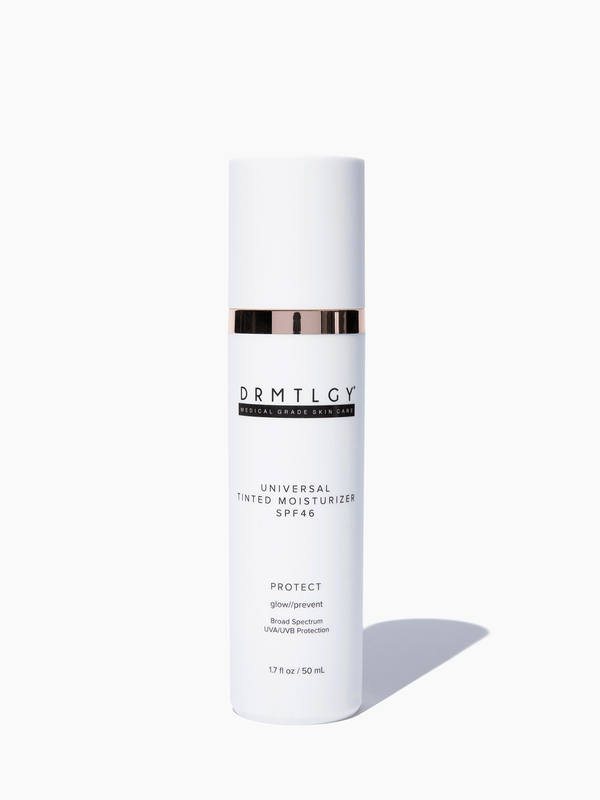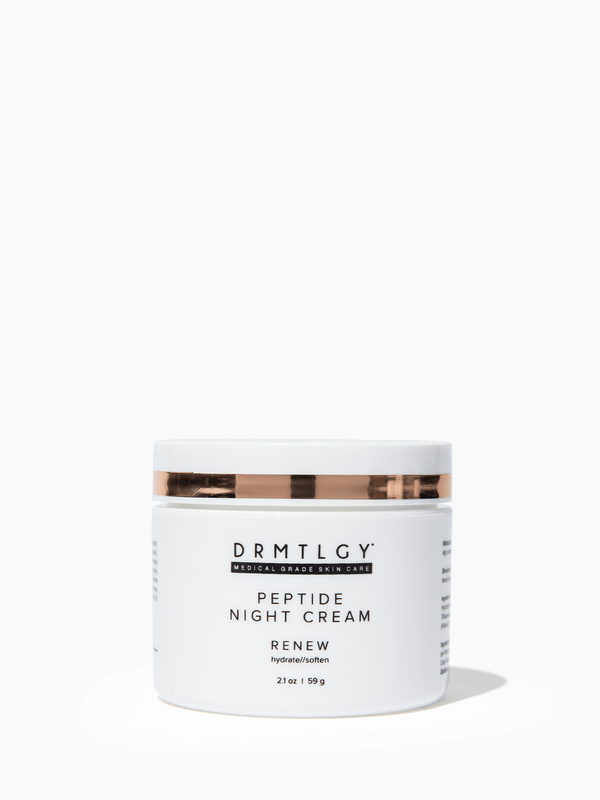Keeping up with your skincare routine may be the last thing on your mind right now.
But whether you’re in self-isolation or quarantine, following a daily routine can help anchor you in the present and even relieve stress and anxiety -- all things we can probably use a lot more of at this moment.
While you’re adapting to this new lifestyle, you may also want to take a closer look at how you take care of your skin and how to counteract any new issues you’re facing. We’re not in the same situation we were a few weeks ago, and ideally, your routine should reflect this. With this free time on your hands, it’s a great opportunity to assess your skin’s current condition and make any changes if needed.
Keep reading for seven coronavirus skincare tips to help you adjust your regimen during self-isolation. By updating your skincare routine for your current situation, you’ll ensure that you -- and your skin -- gets what you need right now.
Your Guide to At-Home Skincare during the Coronavirus Outbreak
Try to stick to your regular skincare routine.
It can be so, so tempting to give into stress or depression and to drop all of your routines. You might be thinking, “What’s the point? I won’t be seeing anyone anyway.”
But don’t give in.
Studies have shown that following routines help you cope with anxiety. Adding structure to your days allows you to take back control of your life -- which becomes especially important when you’re in self-isolation.
Building on non-productive habits, like staying in bed all day, can strengthen any negative feelings you may have. So work on reinforcing good ones instead.
You might even have trouble keeping up with a regular schedule right now -- which is 100% normal. If this is the case, start with the basics. Aim for a simple skincare routine every morning and evening: cleanser, toner, and moisturizer.
Once you get this down -- and if you’re feeling up to it -- you can begin incorporating other products into your regimen. Even if this is the only skincare routine you can manage, this will help you to maintain your complexion during self-isolation.
Apply sunscreen daily -- even when you’re indoors.
Regular SPF application remains a must, even now. Why? Ultraviolet radiation from the sun is the leading cause of skin aging, accounting for 80-90% of it.
Just because you’re staying indoors all day doesn’t mean the sun can’t reach you. After all, UV rays have been proven to penetrate window glass. If you can see sunlight, even through your windows, your skin will feel its effects too.
Besides, you should still try to get some sun every day anyway.
Researchers have found a link between lack of adequate sunlight and seasonal affective disorder, a condition that often affects people in the fall and winter months. Our bodies also need sunlight to produce vitamin D, which plays a major role in the development of your skin cells.
So, make sure to wear sunscreen with at least SPF 30 every day. Consider taking a walk around the block every morning to boost your body’s vitamin D production as well. Or, if that’s not possible, talk to your doctor about incorporating vitamin D supplements into your diet.
Keep your skin moisturized.
You might already be experiencing this problem: dry, flaky skin that won’t disappear, no matter how much lotion you slather on.
Whether it’s your hands, legs, or any other part of your body, our current situation of cold weather, hot showers, and constant hand washing has created the perfect storm for dry and dehydrated skin.
Washing your skin too often will strip it of the natural oils your body uses to keep moisture sealed in. As a result, your skin will produce more oil to compensate for it. This can lead to new breakouts on your face, chest, back, and other body parts.
So how can you counteract this?
Try to use warm or cold water when showering or washing your face. Incorporating hydrating toners or serums will help infuse your skin with much-needed moisture as well. Hyaluronic acid, in particular, doesn’t just boost your skin’s hydration levels; it also helps to fill fine lines and jumpstart collagen production.
Then, apply a moisturizer or face oil as the final step of your skincare routine to ensure that all of that moisture stays locked in. Say goodbye to crusty hands, and hello to supple skin!
Show your hard-working hands some love with our nourishing Hand Cream with extra anti-inflammatory benefits.
Avoid contact with unsanitized surfaces.
Self-isolation might keep you safe from air pollution, but what about the germs inside your house?
Keeping your hands away from your face isn’t just important in preventing the spread of the coronavirus. It’s also a great way to reduce the amount of breakouts you’ll get during self-isolation.
Try to limit the amount of times your hands touch your face, especially if they haven’t been washed. Your hands can harbor bacteria, dirt, and other nasties that can cause blemishes.
With that in mind, you’ll also want to regularly sanitize other objects your skin comes into contact with. This includes your phone, face masks, bedsheets, and hats. Objects like your phone and face masks should be cleaned every day, while your sheets and accessories can be washed once a week.
Find productive ways to manage your stress.
It’s normal to feel stressed right now. We’re in the midst of an unprecedented historical event, and there’s so much uncertainty about our current way of life.
But, long-term stress is bad for your body and your skin.
When we’re stressed, our bodies produce a hormone called cortisol. When this is present in the body, a series of chemical reactions encourage our sebaceous glands to produce more oil and sweat. This, in turn, creates acne -- and even more stress. Ongoing stress can cause serious health problems, or amplify existing ones.
By reducing your stress, however, you can stop this negative cycle in its tracks.
For many people, skincare routines are a time to wind down and relax. It’s time that’s truly dedicated to yourself and your health.
And if you find yourself with some more free time, why not spend a few minutes meditating or journaling? Alternatively, you can pick up that book you’ve always wanted to read, call a friend you haven’t heard from in a while, or even pick up a new hobby.
You’ll be at home anyway, and the news isn’t going anywhere. Might as well do something new for a change, right?
Treat yourself.
You know that high-end moisturizer you’ve saved for a rainy day? Or that heavenly scented lotion you’ve always been reluctant to use?
Indulging yourself with experiences like these helps to counteract stress too. And if you needed the extra encouragement -- yes, this certainly counts as a “rainy day.”
Use those lavish products you don’t normally use. Take the extra time to throw on a restorative pumpkin enzyme face mask or a decadent eye cream. Draw a bath and add a few drops of your favorite essential oils for a spa day at home.
You might not be able to go outside, but you can still pamper yourself with luxurious experiences without ever leaving the house. Take advantage of these moments.
Give your skin a break.
Since you’re at home, why not use this opportunity to give your skin a break? No daily commute means that you don’t have to wear a full face of makeup right now. Give your skin the chance to breathe.
You might also have a few skin concerns that you’ve always wanted to address. Now’s the perfect time to take care of them, since you’re holed up at home with nowhere else to go. If so, take the next few weeks to create the skincare routine you deserve.
Got dark spots? Add a vitamin C serum to your morning routine. Caught yourself wishing for more vibrant skin? Consistent retinol use will do the trick.
This way, you’ll come out of self-isolation with radiant, moisturized skin. Not too bad, don’t you think?
Just remember that it can take two weeks and up to a month to see results from a new skincare regimen, because that’s how long the skin cell turnover process lasts.
But if this feels overwhelming right now, don’t feel guilty about not being able to follow your regimen religiously. These are tough times, and the most important thing is taking care of your health.
Don’t beat yourself up about what you can’t do; focus on the things you can do right now and take things day by day. We’ll get through this together.
If you have any questions about creating the right skincare routine, get in touch! One of our skincare experts can help you put together a regimen that fits your skincare goals and skin concerns.
References
Neuroscience and Biobehavioral Reviews, March 2011, Volume 35, Issue 4, pages 999-1006
Acta Biochimica Polonica, 2016, Volume 63, Issue 1, pages 17-29
International Journal of Biological Macromolecules, December 2018, Volume 120, Pt B, pages 1682-1695
Clinical and Experimental Dermatology, July 2015, Volume 40, Issue 5, pages 540-546















